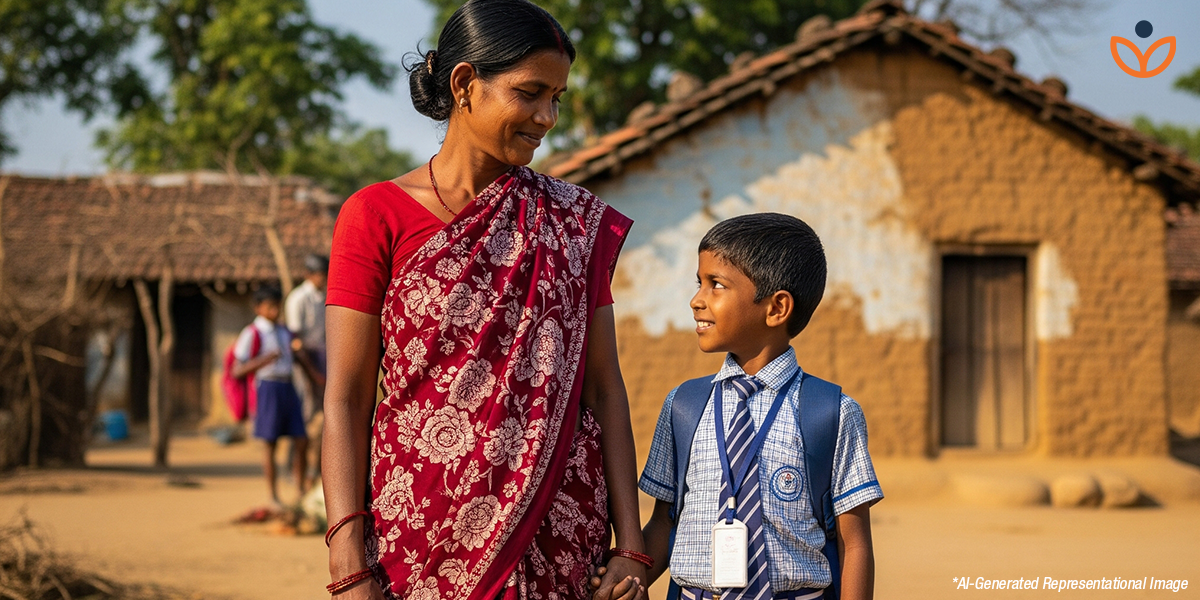
Too often, children are institutionalized or separated from their families when those families lack the essential support systems needed to care for them. Challenges such as poverty, single parenthood, limited access to information, social stigma, and systemic barriers can leave families with few options. In the absence of timely help, they are sometimes forced to make an unthinkable decision, believing that an institution might offer their child what they themselves cannot.
Sangeeta (name changed), coming from a tribal community in East Singhbhum, Jharkhand, found herself in such a situation. After her husband’s death, she was left to raise her 9-year-old son, Ravi (name changed), alone. With no family backing, no permanent home, but just some daily wage work that brought in not more than ₹120-150 on some days, she struggled to provide for Ravi. Despite his strong interest in studies, when he was in Class 4, Sangeeta began to consider institutional care.
Like many tribal families, Sangeeta lacked caste, income, and residence certificates, making her ineligible for government support. Reaching government offices meant losing a day’s wage and travelling long distances—unfeasible for a single mother.
Miracle Foundation India, in collaboration with Bal Kalyan Sangh in Jharkhand, has been working to prevent unnecessary separation of children from their families by enabling timely community-based interventions and strengthening families. The intervention is running across the Kolhan division of the state, covering East Singhbhum, West Singhbhum, and Saraikela Kharsawan districts. During community outreach by the team, a volunteer identified Sangeeta’s situation. Recognizing the urgency of her case, the team helped her access the Panchayat-level Janata Darbar, where she received guidance and support to apply for the Mukhyamantri Aabua Awas Yojana. With their assistance, she completed the paperwork, got her application approved, and the construction of her house soon began.
Ravi also received support through the sponsorship scheme that provided ₹4,000 every month for his basic needs. Sangeeta now receives support to strengthen her parenting skills and is being guided to explore additional income sources like poultry and kitchen gardening. Importantly, she has also become an active member of a Mahila Group under the Jharkhand State Livelihood Promotion Society, giving her further access to resources, peer support, and livelihood opportunities.
This timely intervention made a significant impact. Beyond material support, Sangeeta’s new home symbolizes dignity and security, while Ravi’s sponsorship ensures he can continue his education. This is just one example of the many interventions by Bal Kalyan Sangh and Miracle Foundation India, along with the support of the social workforce, showing how early identification, community action, and system linkages can prevent unnecessary family separation.
